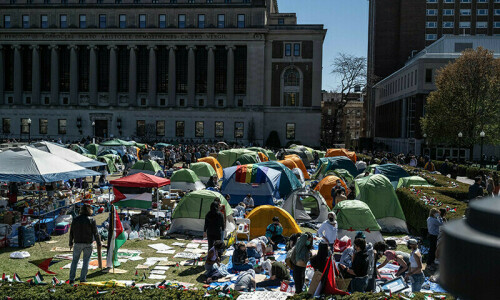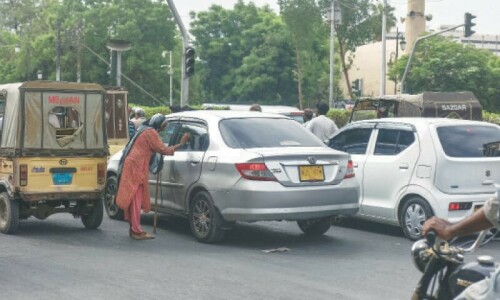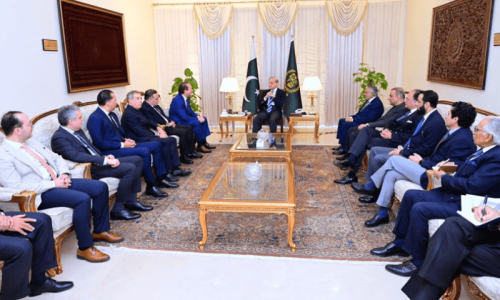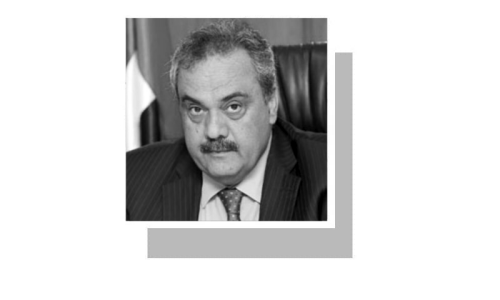WASHINGTON, June 4: Nuclear scientist Dr Abdul Qadeer Khan told US media on Tuesday that he was not responsible for passing nuclear secrets to Iran and Libya.
In an interview with the
McClatchy news organisation,
Dr Khan said that he introduced Tripoli and Tehran to Western businesses who provided the know-how on building a nuclear weapons programme.
Mr Khan, regarded as the father of Pakistans nuclear weapons programme, said in a televised confession in February 2004 that he had run a network that passed atomic secrets and smuggled equipment and technological advice to Iran, North Korea and Libya over a period of 15 years.
But he recanted that admission in his interview with McClatchy, telling the news agency that he had merely given Iran and Libya “very small advice” on where to acquire the technology.
“When Iran and Libya wanted to do their programme, they asked our advice. We said: ‘OK, these are the suppliers, who provide all’.” Dr Khan said that the companies who provided the technology to the two countries were European.
“The Germans have those drawings. The South Africans have those drawings. The French have those drawings. They were the suppliers. You can’t blame me for it. They were selling. They were making money. Why put blame on me?” Dr Khan said during the interview from his villa in Islamabad, where he remains under house arrest.
Dr Khan said that nuclear secrets obtained by North Korea came from Russia.
“All the North Korean scientists and engineers studied in Russia,” Dr Khan said, describing Pyongyang’s programme as having “excellent technology” with “very sophisticated designs”.
The interview, reported to be the first with a US newspaper, comes just days after the 10th anniversary of Pakistan’s first nuclear tests.
President Pervez Musharraf pardoned Khan, but has kept him under house arrest and refuses to let foreign investigators question him.
Dr Khan complained that accomplices in Pakistan had gotten away “scot-free” while he had become a “black sheep” for offering advice on nuclear weaponry.—AFP















































Dear visitor, the comments section is undergoing an overhaul and will return soon.